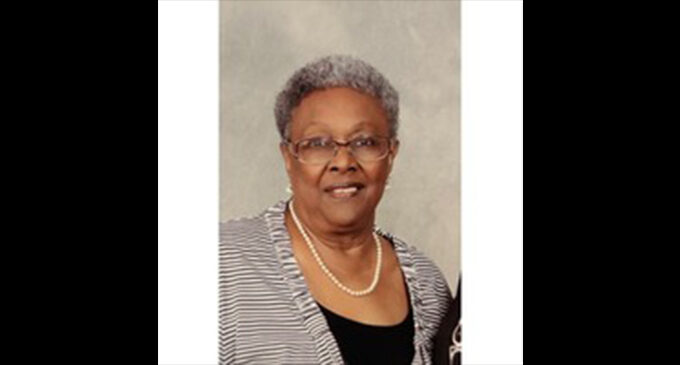Civil rights champion Shirley McCall Fennell passes away at 77, leaving a legacy of justice and activism in Winston-Salem
Shirley McCall Fennell

Shirley McCall Fennell, 77, a revered icon in the civil rights movement, a staunch advocate for equality, and a beloved figure in the Winston-Salem community, passed away on Dec. 23 at Forsyth Medical Center. Born on May 19, 1946, in Winston-Salem to Rev. George James McCall and Pearl Baynes McCall Clinard.
Shirley McCall Fennell’s journey as a fervent advocate for equality was shaped by herfamily’s deep-rooted commitment to social justice. Her father, a dedicated minister, instilled in her the values of fairness and equality. Her mother taught her that sacrifice was often necessary for the benefit of future generations. Her grandfather, Professor Nelson McCall, fearlessly spoke out against injustices faced by Blacks in rural South Carolina, while her great-grandfather, Frank McCall, was a stalwart member of the South Carolina Republican State Militia, offering protection to newly emancipated Blacks and a member of the USCT.
Shirley’s unwavering dedication to civil rights was further fueled by her family’s legacy. Her cousin, Attorney John E. McCall, was a pioneering civil rights lawyer in South Carolina, while John E. McCall, Jr., his son, played a pivotal role in integrating schools in Cheraw. Additionally, her cousin, Yvonne L. McCall, was a member of the Black Panther Party of High Point, embodying the spirit of activism that ran through their family veins.
Her own journey into activism began during her time at d Anderson High Schools. She became an integral part of the local civil rights movement, joining the Student Nonviolent Coordinating Committee (SNCC) and CORE. Even while in high school, Shirley displayed exceptional determination by pretending to be older to actively participate in civil rights protests.
Her pivotal involvement in the 1963 protest at the K&W Cafeteria, which resulted in her arrest, showcased her unwavering commitment to dismantling segregationist laws in Winston-Salem. She continued her activism by representing North Carolina in Dr. Martin Luther King Jr.’s historic March on Washington, standing alongside thousands in the fight for justice.
Following her graduation from Anderson, Shirley pursued higher education at Winston-Salem
State University before embarking on a successful career at R.J. Reynolds (RJR). Her tenure at RJR was marked
by her continued dedication to racial justice, where she played a significant role in the company’s Network 2000 strategy group.
Married to George Fennell, Jr., Shirley was the devoted mother of three children: Lt. Robert Fennell, Lisa Fennell, and Anthony Fennell. Her family remained a source of love and support throughout her lifelong dedication to social change.
“Shirley’s life epitomized unwavering dedication to justice, faith, family, and community,” stated family spokesperson, Spencer McCall. “Her legacy will continue to inspire generations, serving as a guiding light for future advocates of equality.”
Anthony Fennell, her son, reflected on her impact, saying, “We only truly grasped the magnitude of her work later in life. To her, what she did was just something that she had to do. Her courage against a racist system motivates us to strive for a better future.”
Shirley McCall Fennell’s commitment to justice, resilience in the face of adversity, and unwavering dedication to equality has left an indelible mark on Winston-Salem and beyond.
Her passing is mourned deeply, but her legacy will endure eternally.









